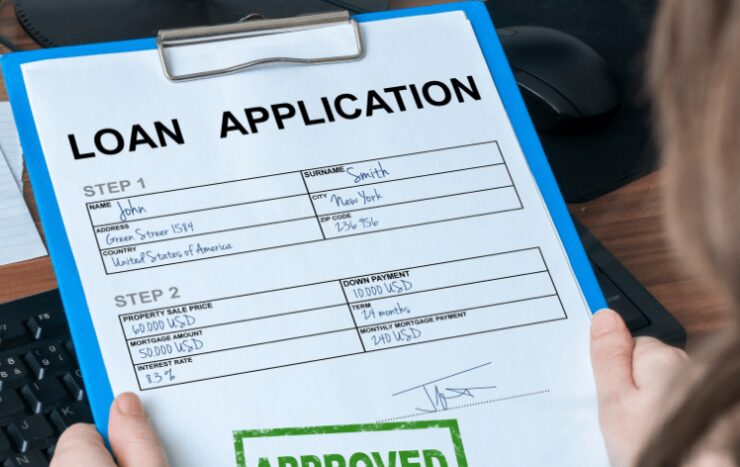As of November 2024, the average American was $90,460 in debt, with a national consumer debt totaling $14.2 trillion. If you’re wallowing in debt, it helps to know that at least you’re not alone. Debt has become a way of life for Americans from all economic spheres.
There are plenty of avenues where you can borrow loans to help you out of any financial fix. However, these avenues drastically reduce if you have bad credit. The million-dollar question thus becomes, how do I get emergency loans for bad credit?
Before we get into that, let’s first clarify that, yes, you can qualify for a loan even with bad credit. However, you’ll have to look in the right places, and most likely, you won’t get as much as you’d want. Still, it doesn’t hurt to explore your options and see what works for you.
In today’s post, we’ll be showing you how you can qualify for a personal loan for bad credit.
1. Online Lenders
The internet is rife with online lenders eager to help you out of your financial predicament as long as you can match the interest. Some lenders choose to run their operations online to sidestep the overhead costs associated with running a brick-and-mortar establishment. The reduced operating costs mean these lenders are more lenient towards borrowers with bad credit than traditional banks.
If you do your digging, you may stumble on one that offers instant cash loans regardless of your credit situation. However, you need to be extra careful with the lenders’ repayment terms and interest rates.
Some unscrupulous online lenders might have ridiculously high annual percentage rates (APRs), even for short-term loans.
To be on the safe side, make sure you read the terms and conditions carefully before signing the dotted line. Also, consider consulting a financial advisor or an expert on finances before doing the same. Borrowing a loan that you can’t repay will only sink your credit score further.
2. Credit Card Cash Advance
A credit card cash advance is a viable option if your credit card allows it. To do so, you first have to visit a branch or an ATM of the bank in question. After that, decide how much you want from the card and provide your credit card pin to get your cash advance.
However, it’s worth noting that credit card cash advances are very expensive and should be a last resort when everything else fails. Cash advance APRs are sometimes a tad higher than regular APRs, and banks almost always charge a fee of about 5% of the credit cash advance.
If you’re strapped for cash and have no other alternative, you can consider a credit cash advance. If not, you should consider the other less expensive options.
3. Payday Loans
A payday loan is a short-term loan where a lender extends a loan based on the borrower’s income. Payday loans are typically characterized by very high-interest rates with APRs that may sometimes exceed 400%. The principal will be a portion of your next paycheck hence the name “payday” loans.
If you opt for a payday loan, you’ll have to repay the full amount in just a couple of weeks. That, plus the high-interest rates, make payday loans a no-go zone for the financially conscious individual. You’re more likely to find a loan with better terms and lower interest rates if you look in the right places.
4. Credit Unions
A credit union is a financial cooperative created and owned by the members. Credit unions provide traditional banking services like savings accounts, credit cards, debit cards, and secured loans. You can get bad credit loans through a credit union with lower interest rates than most other options.
Of course, you’ll first have to be a member of the credit union in question before you can qualify for the loan. Because credit unions act in the interest of all union members, they won’t allow you to borrow a loan you can’t repay.
First, the union will have to assess your income and your general financial situation before you get the green light.
Getting emergency loans from a credit union is a great idea because:
- The interest rates are lower than with most other lenders
- They are more accessible and friendlier than other lenders
- They can personalize their credit assistance to fit your financial situation
The National Credit Union Administration is the body responsible for overseeing all federal operations of credit unions. All monthly payments you make have to be below a certain debt-to-income ratio to prevent financial strain.
Credit unions are great for bad credit personal loans, but only if you’re a member of the credit union in question. In fact, you can borrow a loan and have the union deposit money into your account on the very same day. However, first, you’ll have to join the credit union before you qualify for any loan.
5. Lending Circles
Lending circles bring together a group of people, usually about six to twelve people, to form a lending circle. The individuals in the group take turns receiving loans from each other and paying each other back monthly. Interest loans are typically low or are sometimes zero.
Most lending circles have to report to national credit reporting agencies like Experian and Equifax. Doing so helps members of the lending circle build their credit as an added advantage.
The only downside with lending circles is the time it might take before it’s your turn to receive the loan. This might not be the most suitable option in case of financial emergencies.
Emergency Loans for Bad Credit Made Simpler
The above information should come in handy when you need emergency loans for bad credit. Don’t forget to consider the repayment terms and interest rates before committing to a loan. Also, make sure you explore all your options to find the loan with the friendliest terms.
Do you now have good reasons to apply for a personal loan? Check out our other posts on this site for more informative content.




























